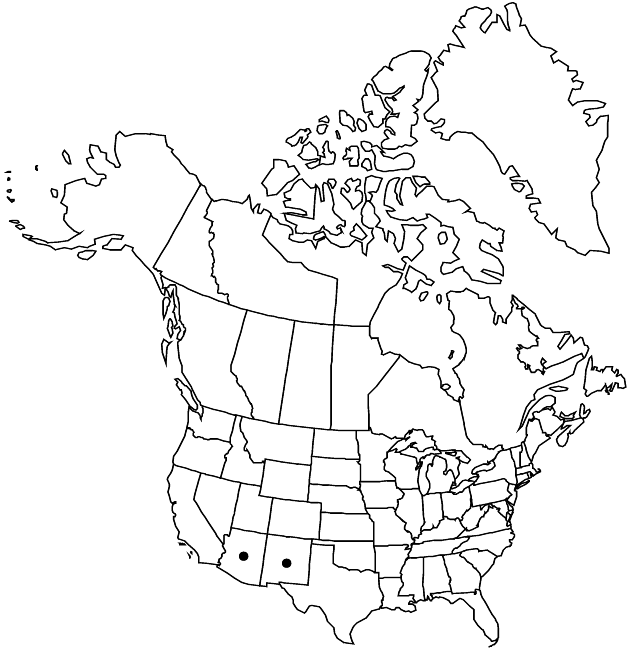Difference between revisions of "Packera neomexicana var. neomexicana"
Common names: New Mexico groundsel
Synonyms: Senecio appendiculatus Greenman Senecio encelia Greene Senecio eurypterus Greenman Senecio oreophilus Greenman Senecio oresbius Greenman
FNA>Volume Importer |
FNA>Volume Importer |
||
| Line 8: | Line 8: | ||
|name=Senecio appendiculatus | |name=Senecio appendiculatus | ||
|authority=Greenman | |authority=Greenman | ||
| − | }}{{Treatment/ID/Synonym | + | }} {{Treatment/ID/Synonym |
|name=Senecio encelia | |name=Senecio encelia | ||
|authority=Greene | |authority=Greene | ||
| − | }}{{Treatment/ID/Synonym | + | }} {{Treatment/ID/Synonym |
|name=Senecio eurypterus | |name=Senecio eurypterus | ||
|authority=Greenman | |authority=Greenman | ||
| − | }}{{Treatment/ID/Synonym | + | }} {{Treatment/ID/Synonym |
|name=Senecio oreophilus | |name=Senecio oreophilus | ||
|authority=Greenman | |authority=Greenman | ||
| − | }}{{Treatment/ID/Synonym | + | }} {{Treatment/ID/Synonym |
|name=Senecio oresbius | |name=Senecio oresbius | ||
|authority=Greenman | |authority=Greenman | ||
| Line 35: | Line 35: | ||
|elevation=1200–2400 m | |elevation=1200–2400 m | ||
|distribution=Ariz.;N.Mex.;Mexico (Chihuahua;Coahuila;Sonora). | |distribution=Ariz.;N.Mex.;Mexico (Chihuahua;Coahuila;Sonora). | ||
| − | |discussion=<p>Variety neomexicana is known from throughout Arizona and in southern and western New Mexico. Its persistent, heavy tomentum and well-developed cauline leaves make it easy to recognize. If type of Senecio thurberi A. Gray belongs within circumscription of Packera neomexicana (see T. M. Barkley 1978), a new combination in Packera will be necessary.</p> | + | |discussion=<p>Variety neomexicana is known from throughout Arizona and in southern and western New Mexico. Its persistent, heavy tomentum and well-developed cauline leaves make it easy to recognize. If type of <i>Senecio</i> thurberi A. Gray belongs within circumscription of <i>Packera neomexicana</i> (see T. M. Barkley 1978), a new combination in <i>Packera</i> will be necessary.</p> |
|tables= | |tables= | ||
|references= | |references= | ||
| Line 59: | Line 59: | ||
|publication year= | |publication year= | ||
|special status= | |special status= | ||
| − | |source xml=https://jpend@bitbucket.org/aafc-mbb/fna-data-curation.git/src/ | + | |source xml=https://jpend@bitbucket.org/aafc-mbb/fna-data-curation.git/src/8f726806613d60c220dc4493de13607dd3150896/coarse_grained_fna_xml/V19-20-21/V20_1327.xml |
|tribe=Asteraceae tribe Senecioneae | |tribe=Asteraceae tribe Senecioneae | ||
|genus=Packera | |genus=Packera | ||
Revision as of 15:19, 18 September 2019
Annuals, biennials, or perennials, usually lanate or woolly, rarely glabrate, taprooted. Stems 1. Basal leaves: blades ovate to obovate, margins deeply dentate or dissected. Cauline leaves conspicuous. 2n = 46, 92.
Phenology: Flowering early Apr–late Jun.
Habitat: Rocky soils, oak-conifer or chaparral associations
Elevation: 1200–2400 m
Distribution

Ariz., N.Mex., Mexico (Chihuahua, Coahuila, Sonora).
Discussion
Variety neomexicana is known from throughout Arizona and in southern and western New Mexico. Its persistent, heavy tomentum and well-developed cauline leaves make it easy to recognize. If type of Senecio thurberi A. Gray belongs within circumscription of Packera neomexicana (see T. M. Barkley 1978), a new combination in Packera will be necessary.
Selected References
None.
Lower Taxa
None.